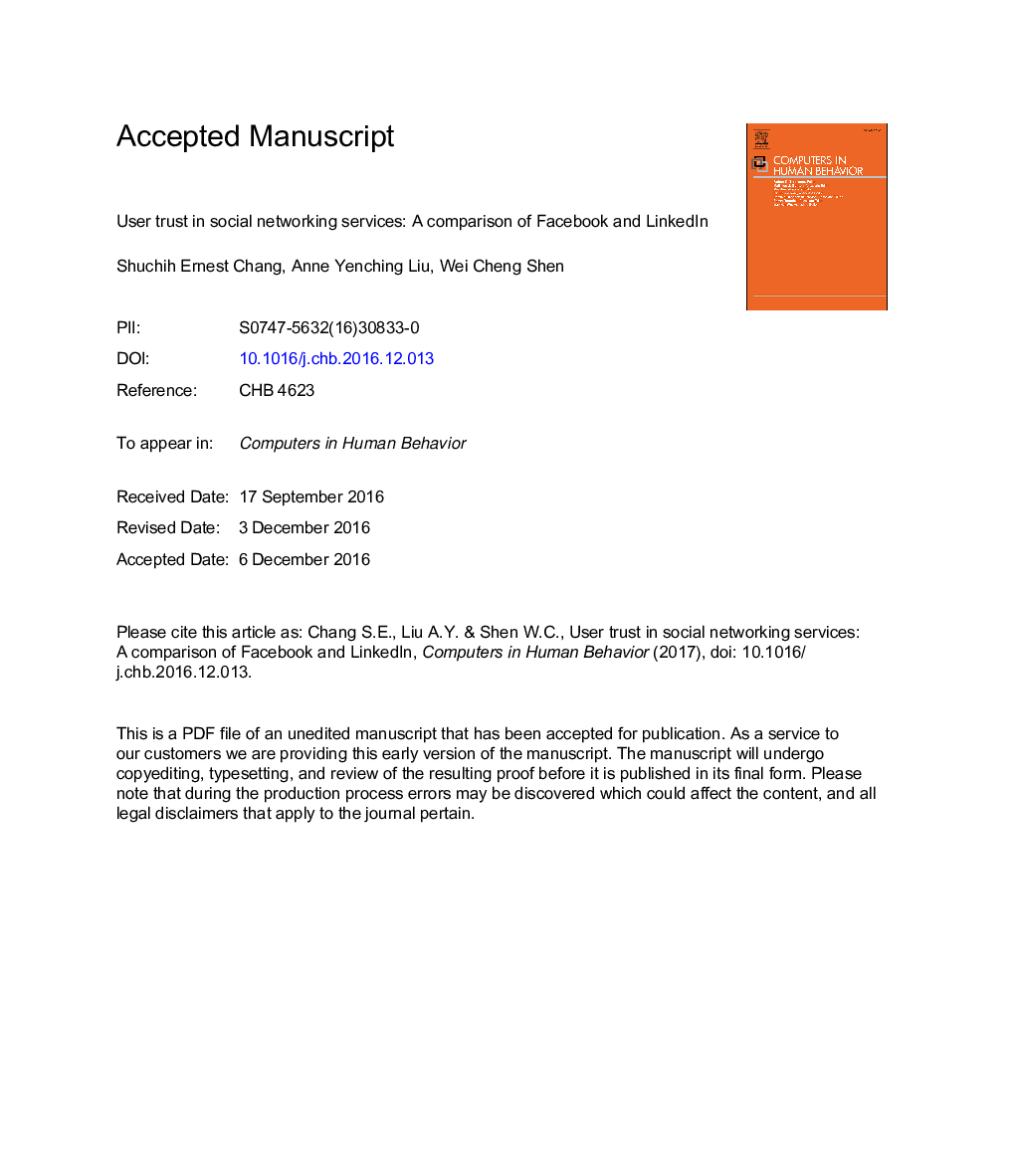| Article ID | Journal | Published Year | Pages | File Type |
|---|---|---|---|---|
| 4937630 | Computers in Human Behavior | 2017 | 42 Pages |
Abstract
The innovative social networking services (SNS) provide people with versatile personal, commerce, and social applications. This study compares Facebook and LinkedIn to better understand factors affecting users' trust on SNS. Subject domain experts were invited to participate in qualitative research based interviews. Using the refined research model a quantitative empirical study was designed and conducted to investigate the relationships between important constructs including effort expectancy, social influence, privacy concern, perceived risk, trust, and continuance intention. Users' trust on SNS is mainly influenced by effort expectancy, social influence, and perceived risk. The impacts of influential factors are different between Facebook and LinkedIn user groups. Our empirical results imply that when the positive influences, such as effort expectancy of the online community, users from different SNS have different needs in social reputation, or high security compliance, in consideration of the negative influence of perceived risk to users' trust when continuing to use the SNS. This study presents a conceptual framework using extant theories and models to form a foundation for SNS incorporating the important factors of trust and privacy concerns.
Keywords
Related Topics
Physical Sciences and Engineering
Computer Science
Computer Science Applications
Authors
Shuchih Ernest Chang, Anne Yenching Liu, Wei Cheng Shen,
